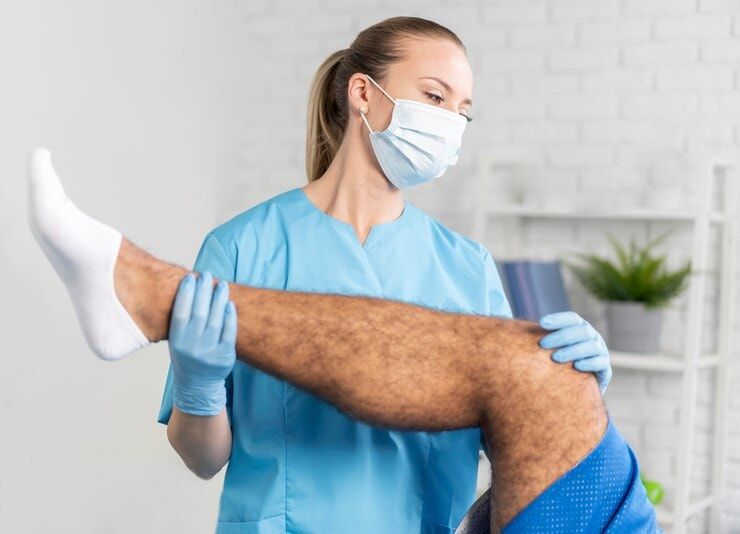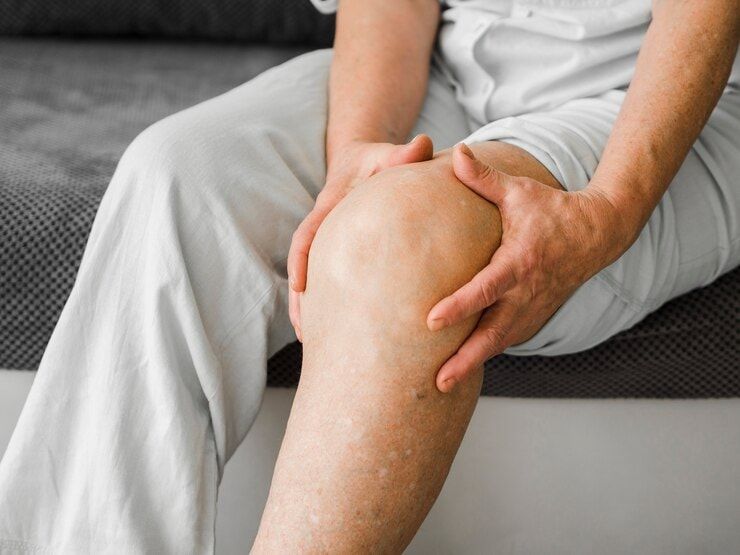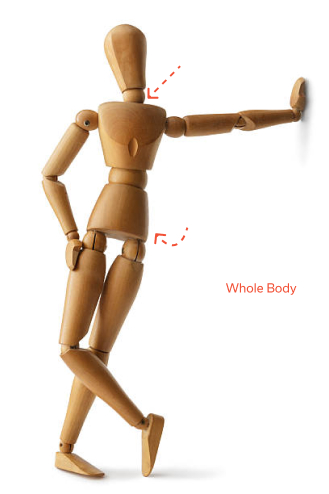How to Treat A Meniscus Tear Injury
By Yuna ZhuangThe knee joint is a complex structure that relies on several components to function smoothly. These components include the meniscus, a pair of crescent-shaped pieces of cartilage that act as a shock absorber, keeping the joint stable. This delicate structure can be prone to tears and wear out.

Meniscal tears are notably common knee injuries with up to 70 out of every 100,000 people experiencing this annually. This article explores the meniscal tear's who, what, why, and how. We'll also dive into its causes and symptoms, diagnosis methods, and treatment options, including physical therapy, surgery, and home care practices.
What Is a Meniscus Tear?
A knee meniscus tear is a relatively common injury that can cause significant pain and limit mobility. A torn meniscus can occur in several types:
- Acute meniscus tears occur suddenly, often due to a forceful twist or rotation of the knee, common in sports injuries.
- Degenerative meniscus tears happen when the meniscus weakens over time as we age. Everyday activities like squatting or climbing stairs can then lead to a tear.
- A medial meniscus tear affects the inner meniscus and is more frequent in younger individuals due to twisting motions.
- A lateral meniscus tear occurs on the outer meniscus and is more common with ageing or forceful weight-bearing activities.
Who Is More Likely to Get a Meniscus Tear?
Meniscus tears can occur at any age, but they are most common among athletes and individuals with an active lifestyle. Contact sports with pivoting, twisting, or stopping suddenly, are also common triggers.
The elderly community is also susceptible to tears. Age-related degenerative changes can weaken the meniscus and wear it out over time.
What Causes a Meniscus Tear?

A torn meniscus can happen by simply rotating or twisting your knee joint the wrong way, or when it's subject to pressure. Likewise, simple everyday acts like squatting, lifting, or kneeling, can also cause meniscus injuries.
In degenerative meniscus cases, this happens gradually due to ageing or worn tissues of cartilage in the knee.
What are the Symptoms of a Meniscus Tear?
Meniscus tear symptoms can vary depending on the severity of the tear and its location. Some common symptoms include:
- Knee pain, especially along the joint line
- Swelling and stiffness in the knee
- Difficulty bending or straightening the knee fully
- A catching or locking sensation in the knee
- A feeling of instability in the knee, sometimes described as "giving way"
If you experience any of these symptoms after a knee injury, see a doctor specialising in sports medicine or orthopaedic surgeons for a proper diagnosis.
How Is a Meniscus Tear Diagnosed?
Diagnosis of most common knee injuries usually starts with an initial interview and a physical examination of your knee. The doctor asks about your medical history and the nature of your injury.
Later on, they may conduct imaging tests, such as magnetic resonance imaging (MRI scan), to confirm the presence and location of the tear. The MRI scan produces detailed images of the soft tissues inside the knee. This allows the doctor to visualize the meniscus tear and differentiate it from other knee injuries like the anterior cruciate ligament (ACL) tear.
Can a Meniscus Injury Heal on Its Own?
It depends on several factors, including the size, location, and type of tear. Smaller cases of meniscus tear heal on its own, at least more likely. Degenerative tears also tend to heal on their own with conservative treatment. However, larger tears, especially those located in the inner third of the meniscus which receives less blood flow, may not heal properly without surgical intervention.
What Happens During Meniscus Tear Treatment?
The treatment approach for a meniscus tear depends on the severity of the tear and your individual needs. Different treatment options incorporate unique methods.
Physical Therapy
During physiotherapy, knee pain physiotherapists will design a program of rehabilitation exercises to help reduce pain after a meniscal injury. This non-invasive treatment improves flexibility, strengthens the muscles around the knee joint, and restores a full range of motion.
Top physiotherapist providers in Singapore like Phoenix Rehab create this personalized treatment plan tailored to your needs. It includes targeted exercises for improving knee stability and preventing future injuries.
Knee Brace
Not exactly a treatment, but bracing is a method to support healing from a meniscal tear or other knee injuries. A knee brace can support and stabilize the injured knee, helping manage pain and swelling.
Meniscus Surgery
This should be the last resort, suitable for severe knee injuries. Meniscus tear surgery, also known as meniscus repair surgery or arthroscopic surgery, may be necessary for larger tears, particularly those that cause persistent pain, locking of the knee, or instability. During arthroscopic surgery, the surgeon inserts surgical instruments through tiny incisions to repair or trim the damaged meniscus tissue.
What You Can Do at Home
Following the RICE principle can help reduce pain and swelling in the initial stages of a meniscus tear. RICE stands for:
- Rest: Avoid aggravating activities. Consider crutches to minimize weight-bearing.
- Ice: Apply ice packs (wrapped in a towel) for 15-20 minutes at a time, several times a day.
- Compression: Use an elastic bandage for gentle knee compression to reduce swelling and provide stability.
- Elevation: Elevate your knee above your heart whenever possible, especially when resting or sleeping.
Additionally, follow your doctor's over-the-counter drug prescriptions like ibuprofen or naproxen pain relievers to manage pain and inflammation.
Tips for When You Visit Your Doctor
Be prepared to describe your symptoms in detail, including the nature of your injury, the severity of your pain, and any limitations you're experiencing in your knee movement. Mention any previous knee injuries or surgeries you've had. Also, bring a list of any medications or supplements you're currently taking.
How Long Does a Meniscus Tear Take to Heal?
The healing time for a meniscus tear varies depending on the severity of the tear and the chosen treatment approach. People also have different recovery thresholds.
Healing from a meniscus tear via conservative methods and home care practices can take anywhere from 4-8 weeks. Meanwhile, recovery after meniscus repair surgery typically takes 4-6 months, with physical therapy playing a crucial role in regaining full strength and function.
How to Prevent Meniscus Tears
Meniscus tears can happen unexpectedly. There are steps you can take to reduce risk factors:
- Maintain good flexibility and strength. Regularly perform exercises that target the muscles around the knee joint to reduce stress on the meniscus.
- Warm up before exercise to prepare your body for movement.
- Use proper form during exercises and sports activities to minimize.
- Maintain a healthy weight to reduce strain on your knees.
- Consider wearing a knee brace when participating in high-impact sports for added support and stability.
Conclusion
Meniscus tear injuries are a common occurrence, young or old. With proper diagnosis and treatment, most meniscus tears can heal effectively.
If you experience any symptoms suggestive of a meniscus tear, consult a doctor or a physical therapist for a proper evaluation and personalized treatment plan. Follow the recommended treatment approach, incorporate preventative measures, and allow for adequate recovery time, so you can heal quicker and more effectively.
Browse other articles by category
Physiotherapy for Knee Pain Physiotherapy For Slipped Disc Physiotherapy for Neck Pain PHYSIOTHERAPY
PHYSIOTHERAPY
 Hand Therapy
Hand Therapy
 Alternative
Alternative
 Massage
Massage
 Traditional Chinese Medicine Treatment
Traditional Chinese Medicine Treatment
 Rehab
Rehab
 Physiotherapy For Lower Back Pain
Physiotherapy For Shoulder Pain
Orthopedic Doctors, Insurance & Healthcare
Physiotherapy For Upper Back Pain
Frozen Shoulder
Physiotherapy for Back Pain
Physiotherapy For Lower Back Pain
Physiotherapy For Shoulder Pain
Orthopedic Doctors, Insurance & Healthcare
Physiotherapy For Upper Back Pain
Frozen Shoulder
Physiotherapy for Back Pain

 Whatsapp us now
Whatsapp us now